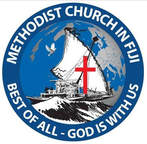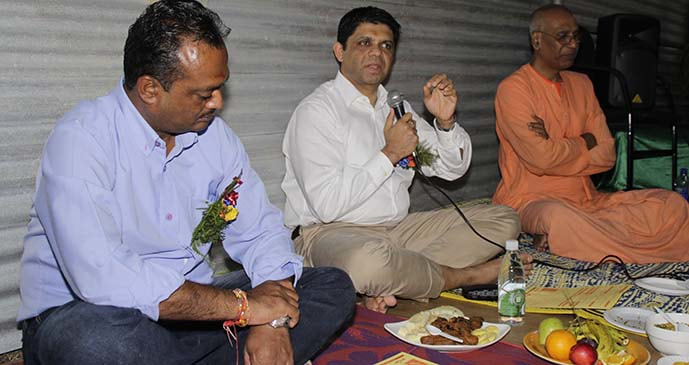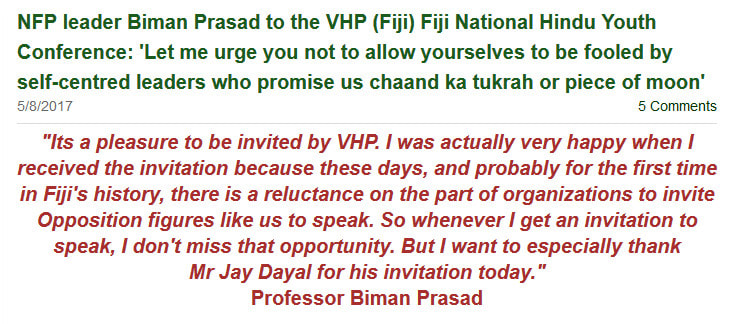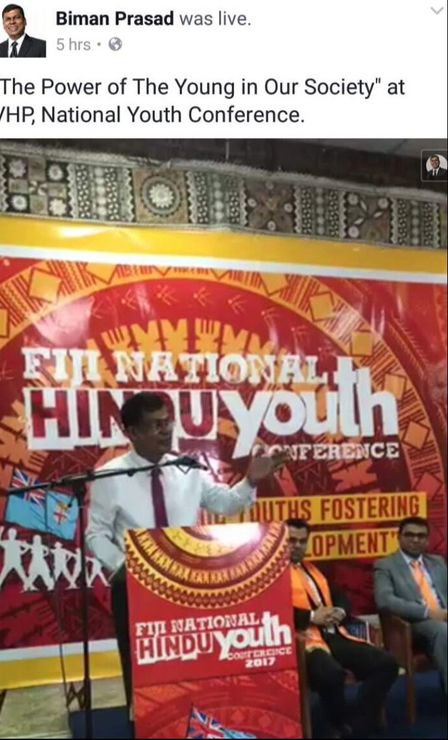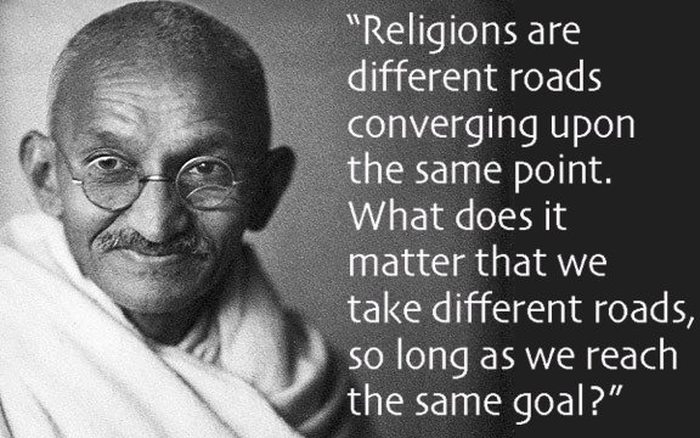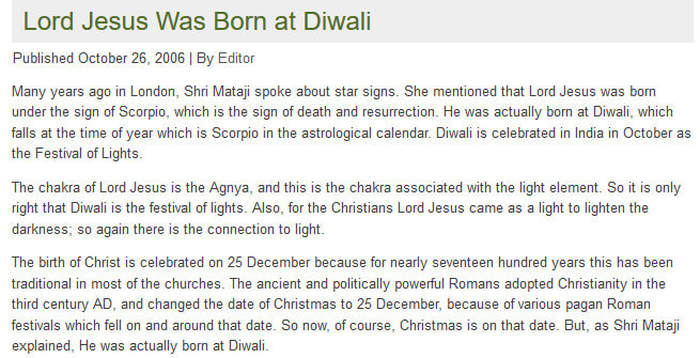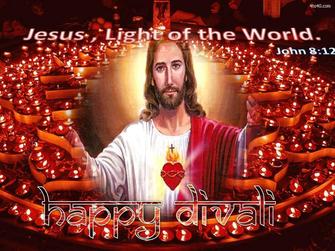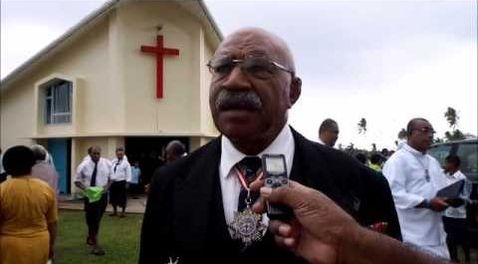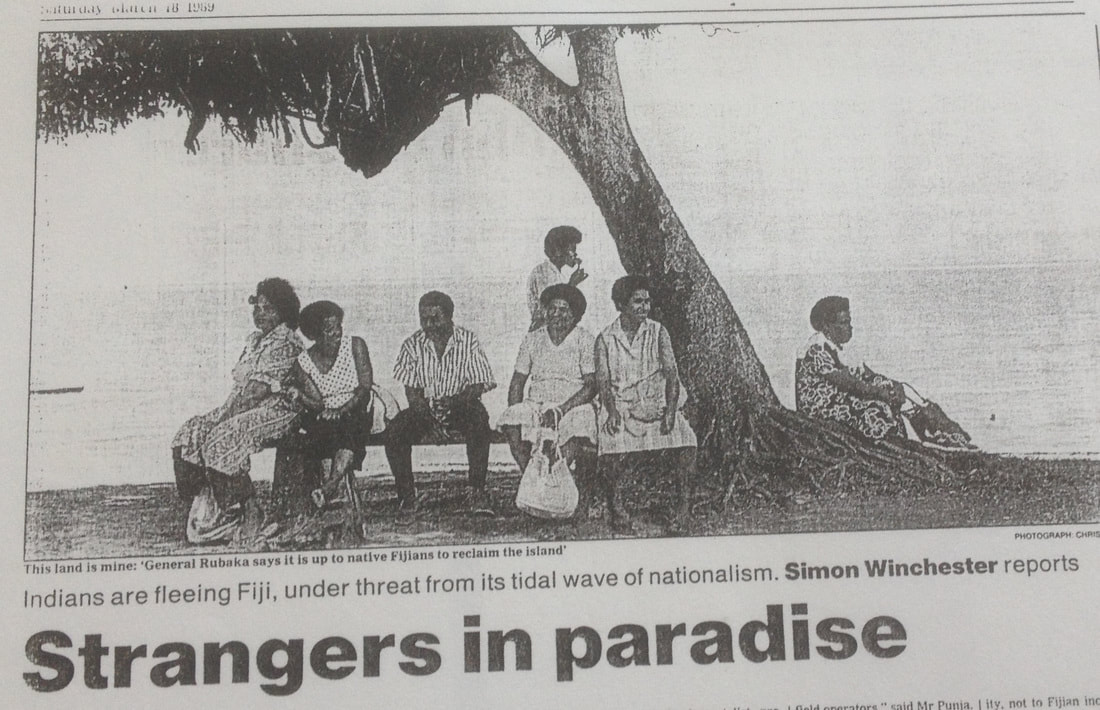"The Hindus and Muslims are pagans who must be converted to Christianity. It will be a big challenge for us to convert all Indians. Those who do not choose to become Christians can continue to live here but they will probably find that is a difficult place to live in. We are trying to make this place perfect for the Fijian people, and if it is not perfect for others then that is too bad. They will have to go."
The ardent Methodist fundamentalist and now SODELPA LEADER
Sitiveni Rabuka shortly after the 1987 coups

Methodist Church run schools do not want to actively participate in non-Methodist religious festivals
The Fijivillage News, 18 August 2017
The Methodist Church in Fiji will soon write to the Ministry of Education, clearly stating that the Methodist Church run schools will not actively participate in non-Methodist religious festivals.
Methodist Church Secretary of Education Waisake Ravatu says the church’s standing committee has approved this as a policy for the church-run schools.
Ravatu says they do carry out awareness sessions because we live in a multi cultural society however the church has taken the stand that they will not actively participate in other religious activities like Diwali, Eid and Holi.
He says each school has special things that they value and the Methodist Church values it’s beliefs. Ravatu says the policy is clear that there will be no celebration of the festivals at the Methodist Church-run schools. When asked on whether the schools will observe the Diwali holiday, Ravatu said that will be done as it is outside the school period.
The Methodist Church in Fiji also claims that there has been no prior consultation done in regards to leadership roles in the Methodist Church run schools, and non Methodists are being appointed as head teachers and principals in these schools. Church President Reverend Dr. Tevita Banivanua says that they had asked the Ministry of Education for all their school heads to be Methodists.
The Education Ministry pays the salaries of all these teachers. The Catholic Education Department had also raised the issue a few years ago that they wanted Catholics to be the heads of their schools. However the government made it clear that the ministry pays for the salaries of the teachers at the schools and they choose the best people for the job.
The Ministry also made it clear that the church run schools can have their religion classes however they should not dictate and choose only to have their own to head the schools.There are 33 Methodist schools in Fiji with 17 Primary schools and 16 Secondary schools.
Acting Prime Minister, Aiyaz Sayed-Khaiyum said It is not constitutionally possible to accede to the request from the Methodist Church in Fiji for all principals and head teachers in schools run by the church to be members of the Methodist Church. The same applies to any religious organisation that has established and manages primary or secondary schools throughout Fiji.
The Fijian Constitution (section 22(4)) expressly states that every religious community or denomination and every cultural or social community has the right to establish, maintain and manage education institutions, however, no such community has the right to dictate who should be appointed as a principal, head teacher or teacher.
It is in the best interest of our students, first and foremost, to have the most qualified head of school in place to ensure the delivery of the most effective learning environment. It is also in the best interests of teachers and of the educational institution to appoint the most qualified head of school available.
Teachers, head teachers and principals are all civil servants with salaries financed by every Fijian taxpayer. As mandated in Sections 123 and 127 of the Constitution, recruitment and promotion within the Fijian civil service are based solely on merit. Government will not allow for discrimination on the grounds of religious adherence as it is contrary to our supreme law, the Fijian Constitution. The appointments and promotions of all civil servants, including teachers, will continue to be made following an open, transparent and competitive selection process based on their qualifications and experience.
Government deeply appreciates the commitment from our religious communities and denominations that establish and maintain education institutions in Fiji. As stated in Section 22(4) of the Constitution, religious communities and denominations have a right to provide religious instruction at those institutions, and students have a right not to participate if they choose to do so.
The Fijian Government is mandated by the Constitution to realise the right of every Fijian to free early childhood, primary and secondary education. As part of the commitment to meet that mandate, Government introduced the free education scheme, free textbooks initiative and free bus fares for travelling students, and recruits teachers, principals and head teachers solely on the basis of merit to put the most qualified people possible in schools throughout the country. These initiatives and policies have, together, led to a remarkable increase in access to high-quality education in Fiji.
The Fijivillage News, 18 August 2017
The Methodist Church in Fiji will soon write to the Ministry of Education, clearly stating that the Methodist Church run schools will not actively participate in non-Methodist religious festivals.
Methodist Church Secretary of Education Waisake Ravatu says the church’s standing committee has approved this as a policy for the church-run schools.
Ravatu says they do carry out awareness sessions because we live in a multi cultural society however the church has taken the stand that they will not actively participate in other religious activities like Diwali, Eid and Holi.
He says each school has special things that they value and the Methodist Church values it’s beliefs. Ravatu says the policy is clear that there will be no celebration of the festivals at the Methodist Church-run schools. When asked on whether the schools will observe the Diwali holiday, Ravatu said that will be done as it is outside the school period.
The Methodist Church in Fiji also claims that there has been no prior consultation done in regards to leadership roles in the Methodist Church run schools, and non Methodists are being appointed as head teachers and principals in these schools. Church President Reverend Dr. Tevita Banivanua says that they had asked the Ministry of Education for all their school heads to be Methodists.
The Education Ministry pays the salaries of all these teachers. The Catholic Education Department had also raised the issue a few years ago that they wanted Catholics to be the heads of their schools. However the government made it clear that the ministry pays for the salaries of the teachers at the schools and they choose the best people for the job.
The Ministry also made it clear that the church run schools can have their religion classes however they should not dictate and choose only to have their own to head the schools.There are 33 Methodist schools in Fiji with 17 Primary schools and 16 Secondary schools.
Acting Prime Minister, Aiyaz Sayed-Khaiyum said It is not constitutionally possible to accede to the request from the Methodist Church in Fiji for all principals and head teachers in schools run by the church to be members of the Methodist Church. The same applies to any religious organisation that has established and manages primary or secondary schools throughout Fiji.
The Fijian Constitution (section 22(4)) expressly states that every religious community or denomination and every cultural or social community has the right to establish, maintain and manage education institutions, however, no such community has the right to dictate who should be appointed as a principal, head teacher or teacher.
It is in the best interest of our students, first and foremost, to have the most qualified head of school in place to ensure the delivery of the most effective learning environment. It is also in the best interests of teachers and of the educational institution to appoint the most qualified head of school available.
Teachers, head teachers and principals are all civil servants with salaries financed by every Fijian taxpayer. As mandated in Sections 123 and 127 of the Constitution, recruitment and promotion within the Fijian civil service are based solely on merit. Government will not allow for discrimination on the grounds of religious adherence as it is contrary to our supreme law, the Fijian Constitution. The appointments and promotions of all civil servants, including teachers, will continue to be made following an open, transparent and competitive selection process based on their qualifications and experience.
Government deeply appreciates the commitment from our religious communities and denominations that establish and maintain education institutions in Fiji. As stated in Section 22(4) of the Constitution, religious communities and denominations have a right to provide religious instruction at those institutions, and students have a right not to participate if they choose to do so.
The Fijian Government is mandated by the Constitution to realise the right of every Fijian to free early childhood, primary and secondary education. As part of the commitment to meet that mandate, Government introduced the free education scheme, free textbooks initiative and free bus fares for travelling students, and recruits teachers, principals and head teachers solely on the basis of merit to put the most qualified people possible in schools throughout the country. These initiatives and policies have, together, led to a remarkable increase in access to high-quality education in Fiji.
